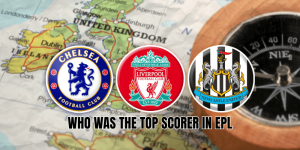In Germany, the Bundesliga is famous not just for its thrilling goals or fanatical supporters, but also for having only 18 teams in its top division. So, why Bundesliga only 18 teams? It’s a choice rooted in history, logistics, player welfare, and tradition. ProteanCup will take you through the full story—how this format came to be, what its pros & cons are, and whether the number might ever change.
History: How the Bundesliga settled with 18 teams

To understand why Bundesliga only 18 teams, we need to go back to its formation and evolution.
- The Bundesliga was founded in 1963. The first season (1963-64) started with 16 teams. Just two years later, in the 1965-66 season, it expanded to 18 teams, a number that has become standard.
- History intervened: after German reunification in 1990-91, the Bundesliga briefly had 20 teams (1991-92) to integrate clubs. But that was short‐lived. From 1992-93 onward, the top flight reverted to 18 teams.
- The decision to keep 18 teams has stuck through the decades, partly because it balanced competitiveness, scheduling, and financial stability.
Reasons behind 18 teams: benefits and rationale

There are several practical reasons why the Bundesliga persists with 18, compared to many other major leagues with 20.
Competitive balance and player welfare
- With 18 teams, there are 34 matchdays per season (each team plays every other twice). This is 4 fewer matches than leagues with 20 teams. Fewer games mean less wear and tear for players. It allows for more rest, especially during the winter break and during European or international duty.
- The German winter break is relatively long. Having fewer matchdays helps the structure of the season avoid too much congestion in cold or harsh conditions.
Financial stability and quality control
- Fewer clubs in the top division means TV revenue, sponsorship income, etc., are shared among fewer teams. Each gets a larger slice, helping to ensure more stable finances. Adding teams dilutes that pot.
- Ensuring only clubs that meet strong licensing, stadium, infrastructure, and financial criteria play in the Bundesliga is easier with fewer clubs. This maintains the league’s professional standards.
Tradition and consistency
- Once 18 became established (, excluding reunification years), fans, broadcasters, clubs grew used to that rhythm. Changing that can have knock‐on effects on fixture scheduling, European qualification slots, relegation/promotion mechanics, etc.
- The structure of the lower leagues (2. Bundesliga, 3 Liga, Regionalliga) is intertwined. Managing promotion/relegation and maintaining regional fairness is smoother with the 18-team top flight setup.
Challenges and debates: Should it change?
Despite the benefits, there are regular discussions in Germany about whether the Bundesliga should increase. Here’s what’s being discussed.
Arguments for expansion to 20 teams
- More clubs involved can mean more fans engaged across broader regions; some argue it would improve national reach.
- More matches could lead to more TV revenue, ticket sales, commercial deals, etc., if managed well.
- Some club executives and former officials (e.g. from Hamburg SV) have called for expansion, arguing it would “bring more calm” by reducing pressure (since fewer relegation spots) and allowing more teams to stay competitive.
Arguments against expansion
- Adding two more teams means four extra matches, which adds strain to the calendar. Between league games, domestic cup matches, European competitions, international breaks and friendlies, players already have heavy workloads. More matches exacerbate fatigue, risk of injuries.
- Dilution of quality: including weaker teams could lead to more mismatches, weaker mid-table games, less intensity overall. The Bundesliga is known for competitive balance, and lowering standards at top flight can erode that.
- Scheduling complexities: more clubs mean more logistics, stadium availability issues, travel concerns, especially in winters and when weather or other events interfere.
- Financial risk: not every extra club will have the infrastructure or financial stability to survive in the top flight without risking insolvency or overspending. This is especially critical under German licensing rules.
Current status and what the future might hold

So, why Bundesliga only 18 teams remains more than just a historical accident—it’s a considered choice. As of the most recent seasons:
- The Bundesliga continues to operate with 18 teams.
- There are voices calling for change, but no firm plan has been enacted to increase the number permanently.
- Any change would require careful negotiation among clubs, the DFL (German Football League), DFB, broadcasters, sponsors, and compliance with UEFA schedules.
Key statistics & comparisons
Here are some numbers that help bring clarity to this issue:
- Matchdays per season: 34 (18 teams, double round-robin) vs 38 in 20-team leagues.
- Exceptions: 1991-92 season had 20 teams due to reunification, but the very next seasons adjusted back to 18.
- Financials: Bundesliga is generally praised for its financial stability, relatively lower wage ratios. The 18-team structure is considered part of what enables that.
Conclusion
In summary, why Bundesliga only 18 teams is a question whose answer lies in the mix of history, player welfare, financial health, and tradition. An 18-team league keeps the season manageable, helps avoid fatigue, ensures a high standard among clubs, and has become embedded in Germany’s football DNA.
If you want to keep up with debates about Bundesliga format changes, learn how German clubs stack up compared to Spain, England, Italy, or explore match schedules, player stories, or statistics—ProteanCup is your go-to place.
Conclusion
Boldly returning to the key point: why Bundesliga only 18 teams is because Germany has found this structure gives the best balance between competition, quality, and sustainability. The 18-team format ensures fewer matches. If you’re a fan curious about how this compares with La Liga, Serie A, Premier League, or want deep dives into player stats or match reviews, ProteanCup invites you to explore our website. Follow us for news, comparisons, and insights that hit home every matchday.






